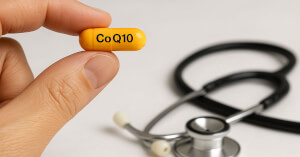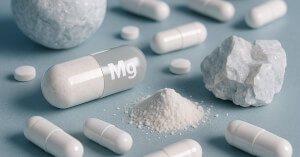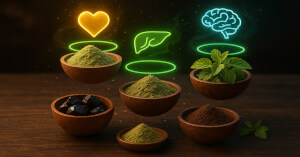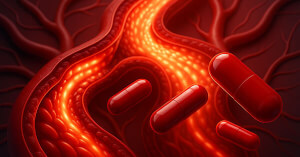
How to Lower Cholesterol with these supplements
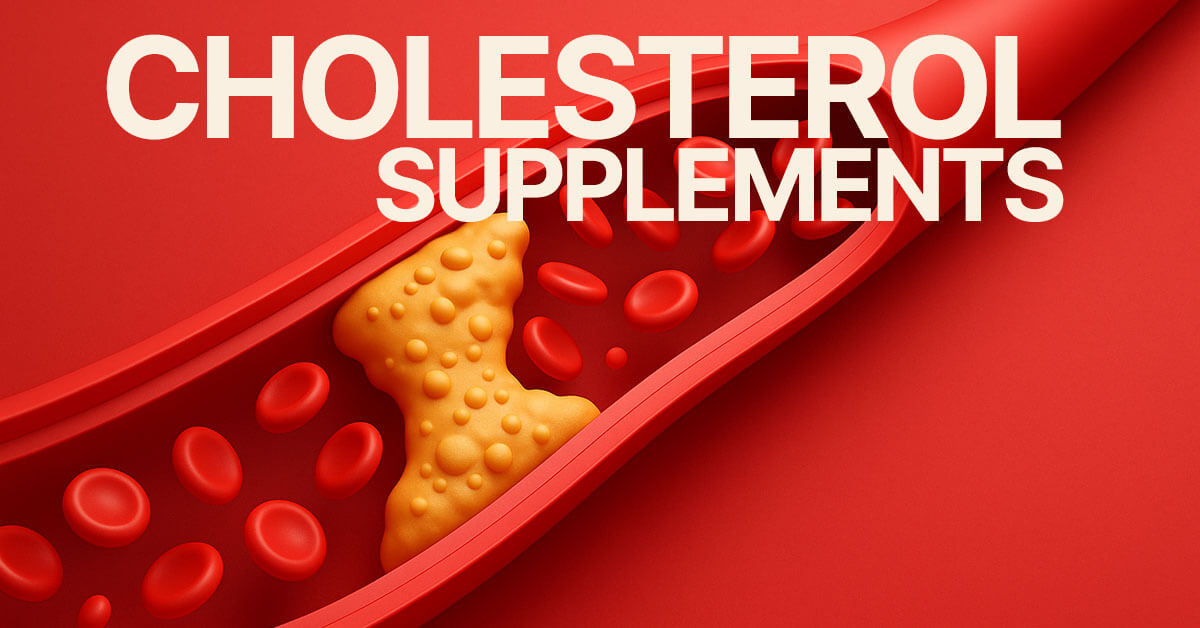
High cholesterol is one of the leading risk factors for heart disease, yet millions of people struggle with it every day. While lifestyle changes like eating a heart-friendly diet and exercising regularly remain the foundation of cholesterol management, certain natural supplements can provide extra support. Backed by scientific studies and centuries of traditional use, these supplements may help lower LDL (“bad” cholesterol), raise HDL (“good” cholesterol), and promote better cardiovascular health. Let’s explore the best options and how they work.
Understanding Cholesterol and Why It Matters
Cholesterol is a fatty substance found in every cell of your body. You need it for hormone production, vitamin D synthesis, and building healthy cell membranes. The problem arises when cholesterol levels, especially low-density lipoprotein (LDL), become too high, causing fatty buildup in arteries. This buildup, known as plaque, increases the risk of heart attack and stroke.
On the other hand, high-density lipoprotein (HDL) is considered “good” cholesterol because it helps remove excess LDL from the bloodstream. The goal of cholesterol management is not to eliminate cholesterol entirely, but to keep the balance in check.
How Supplements Can Help
Supplements are not a replacement for a balanced diet and exercise, but they can provide additional tools for improving cholesterol levels. Some supplements work by blocking cholesterol absorption in the intestines, while others help the liver clear cholesterol more efficiently or reduce inflammation that contributes to arterial damage. Below are the most researched and effective natural supplements for lowering cholesterol.
1. Omega-3 Fatty Acids (Fish Oil, Algal Oil)
Omega-3 fatty acids, especially EPA and DHA, are among the most studied nutrients for cardiovascular health. They don’t directly lower LDL cholesterol, but they can lower triglycerides, reduce inflammation, and improve overall heart function. Algal oil offers a plant-based source of omega-3s for vegetarians and vegans.
- How it works: Reduces triglycerides and prevents plaque buildup in arteries.
- Dosage: Typically 1–3 grams of EPA + DHA daily, but check with your doctor if you’re on blood-thinning medications.
2. Red Yeast Rice
Red yeast rice is a traditional Chinese remedy that naturally contains compounds similar to statins, the cholesterol-lowering drugs. The most active compound, monacolin K, is structurally identical to lovastatin. Many studies show significant LDL reduction with red yeast rice supplementation.
- How it works: Blocks the enzyme HMG-CoA reductase, which the liver uses to produce cholesterol.
- Dosage: 600–1200 mg twice daily. Always choose standardized products to ensure safety.
- Note: Because of its statin-like action, red yeast rice should be used under medical supervision.
3. Niacin (Vitamin B3)
Niacin, or vitamin B3, has long been used to improve cholesterol profiles. It can significantly raise HDL levels while lowering LDL and triglycerides. However, high doses are needed, which can cause flushing and liver stress if not monitored.
- How it works: Reduces the liver’s production of LDL and boosts HDL levels.
- Dosage: 500–2000 mg daily under medical supervision.
- Caution: Avoid high-dose niacin without guidance due to potential side effects.
4. Plant Sterols and Stanols
Plant sterols and stanols are compounds found naturally in fruits, vegetables, nuts, and seeds. They closely resemble cholesterol in structure, which allows them to block cholesterol absorption in the intestines. Many fortified foods now include them, but supplements provide a concentrated dose.
- How it works: Competes with dietary cholesterol for absorption, lowering LDL levels.
- Dosage: 2 grams per day can lower LDL cholesterol by up to 10%.
5. Psyllium Husk (Soluble Fiber)
Psyllium husk, the main ingredient in many fiber supplements, is a soluble fiber that forms a gel in the digestive tract. This gel traps cholesterol and bile acids, carrying them out of the body through stool. Regular intake of soluble fiber is linked to lower LDL cholesterol and improved digestion.
- How it works: Reduces cholesterol absorption in the intestines.
- Dosage: 5–10 grams daily, taken with water.
6. Garlic
Garlic is one of the most popular natural remedies for heart health. Studies suggest it may help reduce total cholesterol and LDL, though results can vary. Garlic also offers benefits for blood pressure and overall cardiovascular protection thanks to its sulfur compounds like allicin.
- How it works: Reduces liver cholesterol production and improves blood vessel function.
- Dosage: 600–1200 mg of garlic extract daily, or 1–2 raw cloves.
7. Coenzyme Q10 (CoQ10)
Although CoQ10 doesn’t directly lower cholesterol, it is important for heart health, especially if you’re taking statins or red yeast rice, which can deplete CoQ10 levels. Supplementing may reduce muscle pain and improve energy levels while supporting overall cardiovascular function.
- How it works: Supports energy production in heart cells and reduces oxidative stress.
- Dosage: 100–300 mg daily, preferably in a fat-containing meal.
8. Green Tea Extract (EGCG)
Green tea (EGCG) is rich in catechins, powerful antioxidants that can modestly reduce LDL cholesterol and improve blood lipid profiles. Drinking green tea or using concentrated extracts can provide measurable benefits over time.
- How it works: Reduces cholesterol absorption and lowers oxidative stress.
- Dosage: 250–500 mg daily of standardized extract, or 3–5 cups of brewed green tea.
9. Artichoke Leaf Extract
Artichoke leaf has been shown to reduce cholesterol synthesis in the liver while promoting bile production, which helps the body eliminate cholesterol. Some studies suggest notable LDL reductions in people with high cholesterol.
- How it works: Inhibits HMG-CoA reductase and increases bile flow.
- Dosage: 300–600 mg twice daily.
10. Soluble Fibers from Oats and Barley
Beyond psyllium, other soluble fibers like beta-glucans from oats and barley have strong cholesterol-lowering properties. Eating whole oats or using supplements rich in beta-glucans can make a noticeable difference in LDL levels.
- How it works: Binds cholesterol in the gut and reduces absorption.
- Dosage: 3 grams of beta-glucans daily.
Lifestyle Matters Too
While supplements are helpful, they work best when combined with lifestyle improvements. A heart-healthy diet rich in vegetables, fruits, whole grains, lean proteins, and healthy fats like olive oil is essential. Regular exercise, quitting smoking, and maintaining a healthy weight also contribute significantly to cholesterol control.
Safety and Precautions
Natural doesn’t always mean risk-free. Some supplements, such as red yeast rice or niacin, can interact with medications or cause side effects. Always consult your healthcare provider before starting any new supplement, especially if you are taking prescription drugs or have existing medical conditions.
Conclusion
Managing cholesterol naturally is possible with the right combination of diet, exercise, and supplements. From omega-3 fatty acids to red yeast rice and plant sterols, many natural options exist to support healthy cholesterol levels. The best approach is personalized: find what works for your body, stick to consistent habits, and always keep your doctor in the loop. Over time, these small daily choices add up to a stronger heart and a healthier future.
FAQ about Cholesterol
What is good cholesterol and bad cholesterol?
HDL is considered “good” cholesterol because it helps remove excess LDL from the bloodstream. LDL is called “bad” cholesterol since high levels can cause plaque buildup in arteries, raising the risk of heart disease.
Which supplement lowers cholesterol the fastest?
Red yeast rice is among the most effective natural options for quickly reducing LDL cholesterol, but it should be used under medical supervision because of its statin-like action.
Can I take supplements instead of statins?
Supplements may support cholesterol management but should not replace prescription medications without your doctor’s approval. In some cases, they can be used alongside statins.
How long do supplements take to lower cholesterol?
Most natural supplements need at least 4 to 12 weeks of consistent use before you see measurable changes in cholesterol levels.
Are there side effects to natural cholesterol supplements?
Yes. For example, niacin can cause flushing, and red yeast rice may interact with other medications. Always consult a healthcare professional before starting a supplement routine.
What is the safest natural supplement for cholesterol?
Psyllium husk and plant sterols are considered among the safest, as they work in the digestive system and have minimal side effects when taken as directed.
This article was originally published on Stackbb, your trusted source for science-based supplement guides.
